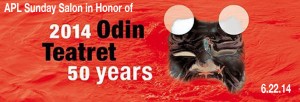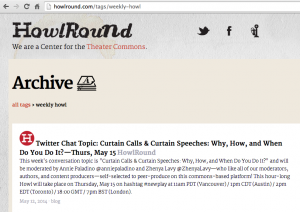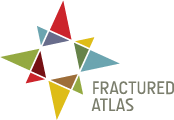When Dara Weinberg introduced on Howlround her intention to develop A Polish Theatre Cookbook, APL Co-Artistic Director Zhenya Lavy took issue with what she views as a misguided project. Take a look at Weinberg’s original post for context. This is what Zhenya posted in response:
Perhaps well intentioned, but the central tenet of this project — “[…]how US artists can modify or adapt Polish techniques for their own kitchens” — strikes me as seriously misguided. To say nothing of the Orientalism underlying the endeavor, “Polish theatre” is not homogenous, and it’s not possible to create a recipe/check-list for making it. The initial ingredient list above includes “techniques” (more like a bag of tricks) of a dubious nature, as well as items pertaining to working conditions that are more likely idiosyncratic happenstance of a particular director or project development situation rather than properties of national practice or aesthetic. The decontextualization and oversimplification of the items listed via the cookbook metaphor spells a recipe for disaster — especially when put into the hands of people who don’t have a clue regarding context and/or are lacking the intellectual/artistic fortitude/background/sensitivity to employ the ingredients tastefully.
Remember what happened when an incomplete and oversimplified view of Stanislavski’s work made its way to America? (By the time the Moscow Art Theatre was brought to America, Stanislavki had already evolved his practice beyond a restrictive emphasis on psychology.) We got what has become the very limited, complacent, hegemonous banality so ubiquitous on American stages today. We did not get the quality of work/inquiry actually fetishized by those admirers of Stanislavski who sought to bring his techniques to America. We did not get the kind of work/inquiry more likely to be found today in places such as Central and Eastern Europe, where Stanislavski’s legacy-in-action accounts for a more holistic transmission of his teaching and theories and, perhaps most importantly, has fostered a spirit of continuous inquiry/research and a conviction that — more than just being a well-made story or an object for consumption — theatre art actually can DO something.
It is impossible to substitute for the social, political, religious, historical, and practical contexts in which Polish theatre practice has developed. It is impossible to replicate the cultural environment and rich artistic legacy into which Polish people are immersed from birth and within which their artistic development is shaped. It is a fallacy to suggest that someone can take ingredients x, y, z and create Polish theatre or anything approximating it.
This does not mean I think Weinberg should scrap the project completely. I would encourage Weinberg to focus on the portion that includes reporting from rehearsal rooms and interviewing directors … but to eliminate the cookbook component. Where there is an impulse to hold some “different” technique forward in a how-to fashion, instead consider exploring the systems (government and otherwise) which may have contributed to its development. Consider anything else, please, besides implying that there are quick tricks, simple steps, or even a coherent method for “cooking” theatre like they do in Poland.
Finally, I encourage Weinberg to consider being more mindful of language. Not every point of difference merits the label “technique.” Moreover, referring to techniques as “weird” both polarizes and others your subject.
Absent the prescriptive component, I believe Weinberg’s project has the possibility of making a positive contribution to our understanding of theatre in Poland today.
Weinberg did post a rebuttal. Somewhat better studied but still misguided….
 We are thrilled to add a special Sunday Salon to our regular, quarterly line-up and hope you will join us for this rare opportunity!
We are thrilled to add a special Sunday Salon to our regular, quarterly line-up and hope you will join us for this rare opportunity!



